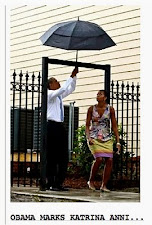In "Impostor," his 2006 critique of George W. Bush's economic policies, Bartlett wrote: "In my view, the VAT lends itself to dealing with our long-term budget problem because it can be raised a little bit at a time without causing serious economic repercussions."
Lovers of big government have long yearned for a VAT, and statements made by House Speaker Nancy Pelosi make it clear that she is salivating for its enactment to pay for some of the Democrats' endless spending spree.
How unpopular is the VAT? The best person to ask would have been the late Democrat Al Ullman. As chairman of the powerful House Ways and Means Committee during much of the 1970s, he was one of the most powerful politicians in Washington. But he actually lost the Oregon congressional seat he had held for decades after championing the VAT.
First cooked up by France, the VAT's hidden nature is what gets ordinary Americans justifiably furious when they hear talk of it. Steve Forbes and Elizabeth Ames, in their new book "How Capitalism Will Save Us," call the VAT "insidious because it imposes an invisible layer of taxation that inflates the cost of living . .. increases the cost of doing business and hits all consumers."
As Hoover Institution flat-tax gurus Robert E. Hall and Alvin Rabushka have warned, a VAT is unacceptable "to most Americans on grounds of equity" because "by taxing consumption from the first dollar at the same rate, it puts a substantial tax burden on the poor." It therefore "is rarely considered as a replacement for the income tax."
But it would also inflict an inflationary assault — the last thing our economy needs right now. "Experience in Europe has made it plain that the incorporation of the VAT in product prices is not just an academic proposition," Hall and Rabushka point out.
"Not only are prices marked up by the amount of the VAT as soon as the tax goes into place," the economists add, "but there are second and third rounds of inflation as wages respond to higher prices through cost-of-living escalation. In 1979, when Britain raised its VAT rate while cutting income tax rates, a burst of inflation crippled the economy for several years."
The statists now running Washington are too in love with income taxes to replace them with a VAT; it's an added value-added tax they want, starting at a "painlessly" low rate, then growing like a cancer.
Thursday, April 8, 2010
About the VAT tax that the Dems Are Salivating Over
Investor Business Daily Explains..
Labels:
liberal fascism,
socialism,
VAT
Subscribe to:
Post Comments (Atom)











The VAT makes sense to Democrats for lots of reasons. As the Health Care debate has demonstrated, the Democrats could push this through as well even if the public does not want it.
ReplyDeleteThe economic situation reminds me a little of the late 1970's, before the inflation hit. The economy today is not nearly as strong. The takeover of so much of the private economy has not yet begun to have an impact. The interest rates are much lower.
All this on top of the foreign situation with terrorism and suicide attackers scares the hell out of me.